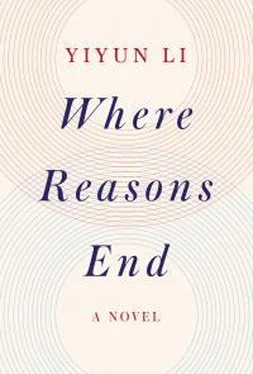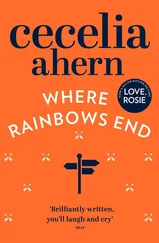I laughed. The first time he had made squash bread he had not waited for the milk to cool down before adding in the yeast. We had had a good laugh about the dough that refused to rise to the occasion.
Your turn, he said.
I didn’t realize we were competing.
I thought for a moment. Stupid salt that thinks of itself as camouflaged snow, I said.
I won, he said.
Not really. The snow is so cold the salt is bound to feel benumbed, I said.
Benumbed, that was a word to describe myself all these weeks, benumbed yet un-astonished.
Stupid river that allows a stone to bounce on its surface, he said.
My heart ached. A few days before he had turned sixteen, I had brought Nikolai and two other children kayaking. It was a perfect afternoon, sunny, breezy, quiet on the river, the trees on both banks beginning to show the first hues of gold and red, a few dead branches floating along the canal. The children had been talking and singing and later taking a long hike along the tree-lined path, stopping now and then to skip stones. They had been confident in their happiness as the last days of the summer are confident in their everlastingness. While I was watching them, my heart had begun to ache with such vehemence that I had thought I was being assailed by a sudden illness.
You’re only thinking back from a different place and adding your feelings, Nikolai said.
No, I protested. Some memories cannot be revised. They are what they are.
Fine, if you say so.
We were quiet for a moment. The snow, I said. You would have loved it.
Nikolai did not speak. The last time we had lived in a place with snow was more than twelve years ago. He was three, and with parental help had made a snowman thrice his height. I wondered if he had any recollection of the snowman.
Chopped down by two barbaric boys, he said.
Barbaric, I said, uncertain if that was the best adjective.
Used without any political connotation, he said. How sensitive people are these days. I speak from the point of view of a three-year-old.
It was true that the snowman had not lasted, born and destroyed on the same day. Two boys, seven or eight, had charged at it. Before we could rescue the snowman, its head was smashed, its body kicked around.
What else do you remember about that apartment?
Not much, he said. The playground. The red rock there.
Ah yes, I said. There had not been a red rock but he had cut his toe once, and bled so much that a rock turned red. In his confusion he had thought the red rock had done the mischief and all red rocks from then on were dangerous.
The apartment compound, of concrete and metal, used to be military barracks but by then served as inexpensive housing for graduate students and visiting scholars from around the world. Walk twenty minutes in one direction and one would meet cornfields. Ten minutes in another direction, a former campsite where thousands of Mormons, of English and Welsh descent, had begun their trek west, with near nothing but empty handcarts they had built for the migration—the city where we lived had been the end of the westbound railroad in 1865. Two hours’ drive to the north was a house where Antonín Dvořák had spent a summer in 1893, composing American Quartet. The week before Nikolai’s death he had been surprised that no one had recognized a Dvořák theme during an orchestra class.
Do you know Dvořák lost three children? I said. I only found out today.
I didn’t know, he said.
When we said farewell to Nikolai, a dear friend played on her violin Dvořák’s “Songs My Mother Taught Me.” I had not taught him many songs, I had not told him many stories. But I had watched him live a rich life worthy of the songs and stories of the enduring kind.
Yikes, he said. Sounds like a bad sentence from a sentimental biography.
A parent should never be a child’s biographer, I thought. How about, I said, you’ve lived a life with a richness both congruous and incongruous.
Congruous and incongruous with what? he said. How I hate your habit of using the opposite forms of the same word in one sentence. There is no precision. And no point to make whatsoever.
I flinched. When he was eight, he had shared a cab ride with an editor friend and criticized a story of mine she had published, explaining to her that she should have pressed me to work harder on the backstories.
Oh that, he said. I was giving you both a hard time because I just felt like it. Still, you need to know richness is an overused word, congruous or incongruous.
Intensity?
Equally bad.
Elegance, ingeniousness, perspicacity?
Gosh. Perhaps you should just stay with simple nouns like trees and flowers and leaves and birds and stars.
And snow, I said.
Yes, he said, why not?
Why not, I thought. Because a noun does not always remain a wall. Even the simplest noun can turn into a tunnel, a trapdoor, a maze, a vacuum, the Colosseum, the Great Wall of China, Starry Night Over the Rhone, the songs a mother has yet to teach a son, the stories a mother chooses not to tell. One can put one’s trust in solid nouns—house, garage, road, breakfast, lunch, dinner, weekdays, weekends, holidays—as one can play the simplest tunes on the piano with a single finger. Twinkle twinkle little star, I’m a little teapot, Mary had a little lamb, Hey diddle diddle, but all of a sudden it’s not an inexperienced finger picking out one note at a time but an uncontainable piece for four hands. Two strangers playing. One meticulously, the other recklessly; one exquisitely, the other mercilessly. Who are you? Are you improvising to entertain yourselves, or are you assigned to play this incongruous music called life?
What is music to life? Nikolai asked suddenly.
When Nikolai was in sixth grade, he had written a poem, remembered by my friends when they had come to say farewell to him, recited by his friends when they had said farewell to him on the other coast. I had put the first stanza among his photos in my office:
My life
is Kansas
and music
What is music to life? I said. You tell me.
Do you still have all those oboe recordings?
Yes, I said. His oboe teacher had given him recordings of several oboe masters.
When you listen to them, you realize how perfect they are, he said. I only wish I had played a single note as perfectly as they did.
I had not been able to listen to any of the recordings past a phrase. Any music with oboe in it was too much to bear.
You’re still learning, I said.
Was, he said. I was learning. But this is what I’ve realized. Music can be perfect.
Life cannot be? I asked.
I don’t mind that life is not perfect. I do mind that I cannot perfect myself in an imperfect life.
Perfection is like a single snowflake, I said. It melts.
A perfectionist melts too, Mommy.
12
Inertia
We bought a little tree yesterday, I said.
e. e. cummings’s little tree? Nikolai said.
Goodness, I said, I forgot all about that.
So you just went out and bought a little tree for no good reason?
For Christmas, I said. Wouldn’t that be a good enough reason?
No, he said. I thought you bought the tree because of the poem, and I was considering forgiving you.
In sixth grade Nikolai had chosen cummings’s poem for an assignment. He was not often drawn to warmth and brightness in literature, and his commentary was as loving as the boy in the poem.
put up your little arms
and i’ll give them all to you to hold
every finger shall have its ring
and there won’t be a single place dark or unhappy
He speaks from a place dark and unhappy, you know? Nikolai said.
I know, I said. You also called the tree an orphan.
Did I? he asked. I don’t remember.
Читать дальше












